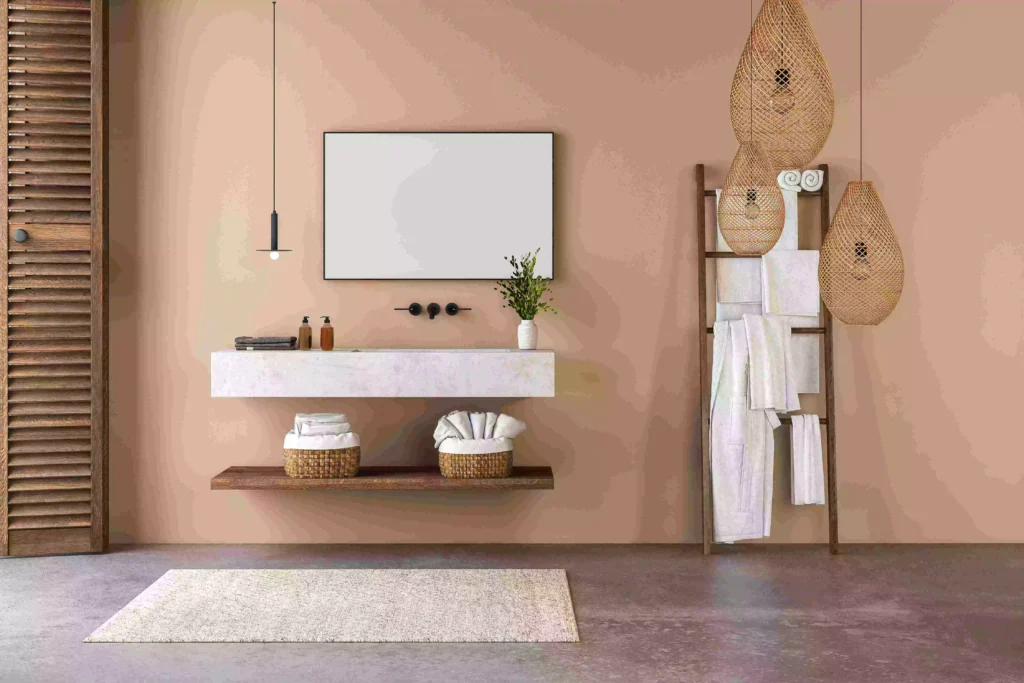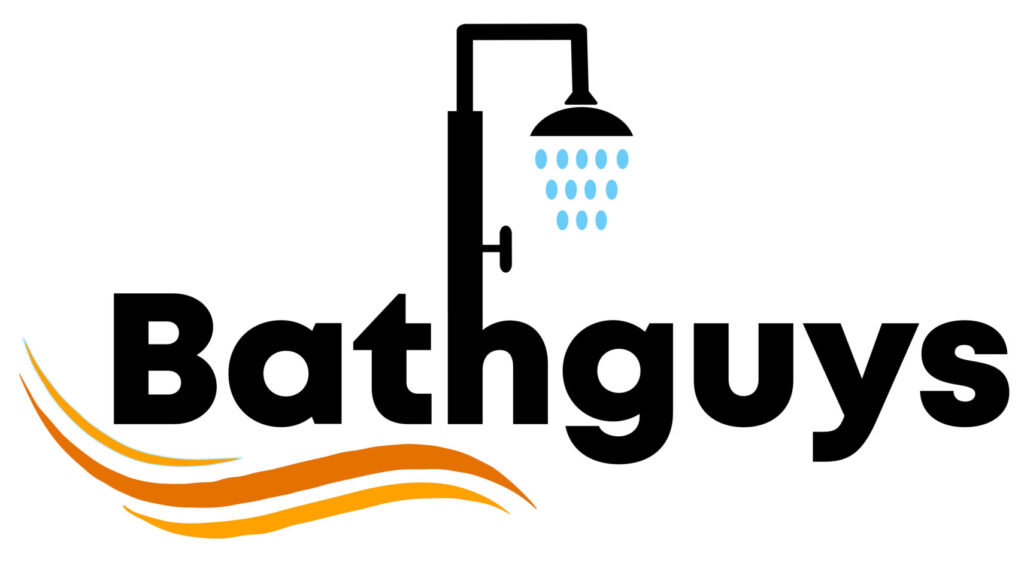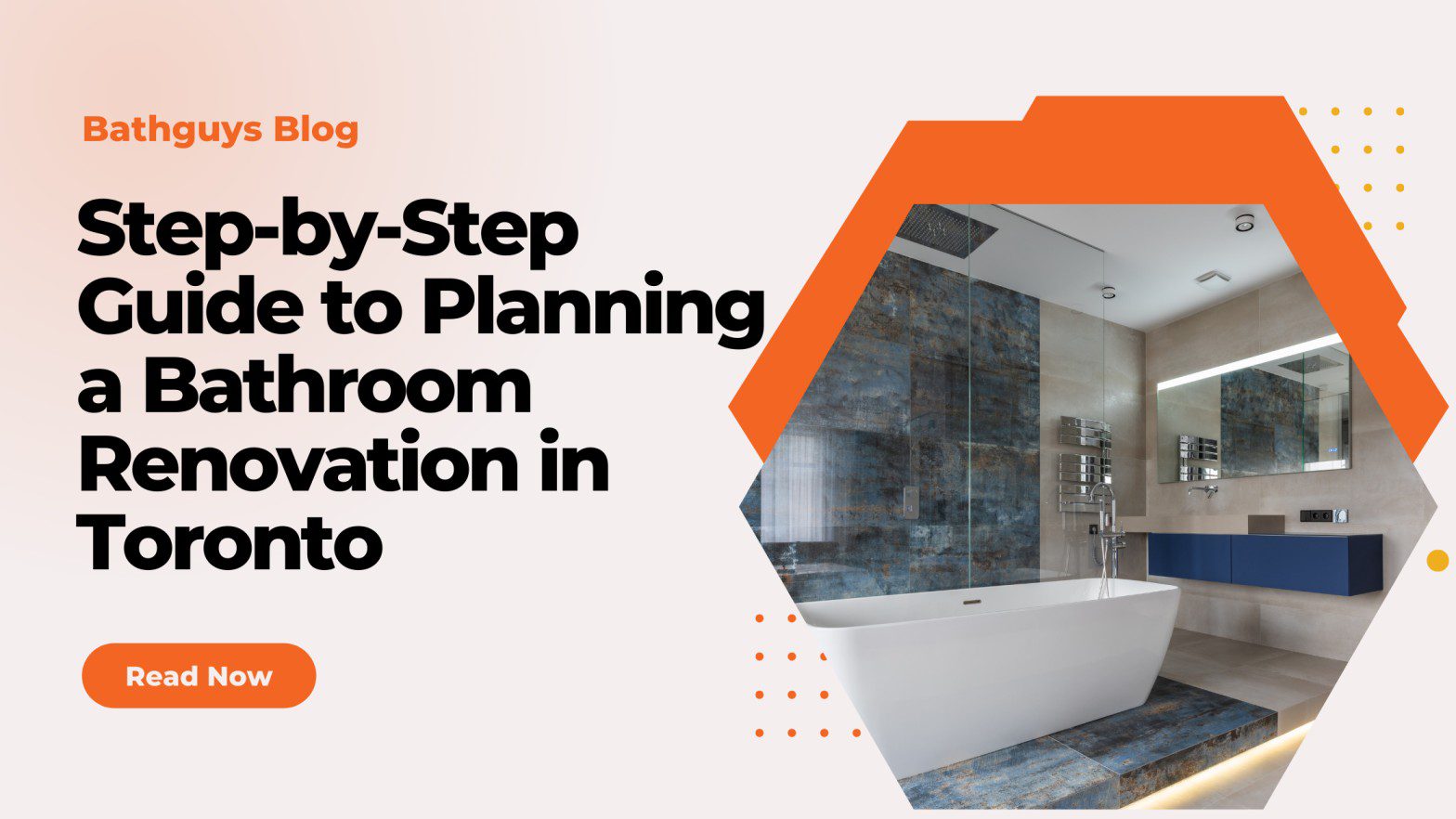Planning a bathroom renovation in Toronto can feel exciting, but it often comes with big questions. How much will it cost? Do you need permits? How long will it take? Many homeowners in Toronto and the GTA want a stylish, functional bathroom but aren’t sure where to begin. Without a clear plan, small mistakes can quickly turn into costly problems.
That’s where this guide will help. We’ll walk you step by step through the entire process — from setting a budget and understanding permits to choosing the right design and hiring a trusted contractor. Whether you’re renovating a condo bathroom downtown or upgrading a family home in the suburbs, this guide will give you the knowledge and confidence to plan your project the right way.
Table of Contents
Quick Overview: Types of Bathroom Renovations
Before diving into budgets, permits, or design choices, it helps to understand the different types of bathroom renovations in Toronto. Every project is unique, but most fall into three main categories: cosmetic refresh, mid-range remodel, and full renovation. Knowing where your project fits will help you set realistic goals, timelines, and costs.

1. Cosmetic Refresh (Surface-Level Upgrades)
A cosmetic refresh is the simplest and fastest type of bathroom renovation. It focuses on updating the look of your space without changing the layout or major plumbing. This is perfect for homeowners who want a fresh, modern look without the time and expense of a full remodel.
What’s usually included:
- Repainting walls or replacing wallpaper
- Upgrading lighting fixtures
- Changing faucets, cabinet handles, or mirrors
- Replacing old caulking and grout
- Installing a new vanity or medicine cabinet
Best for: Condos and smaller Toronto homes where the bathroom layout already works well. A cosmetic refresh usually takes 1–2 weeks and is the most budget-friendly option.
2. Mid-Range Remodel (Layout Adjustments + New Fixtures)
A mid-range remodel goes beyond surface changes. It often includes replacing major fixtures and sometimes adjusting the layout to improve flow and function. While it requires more planning, it’s the most common type of bathroom renovation for Toronto homeowners.
What’s usually included:
- Replacing the bathtub or shower enclosure
- Upgrading toilets, sinks, and vanities
- Installing new tiles for floors and walls
- Improving ventilation or lighting
- Making minor plumbing adjustments (e.g., moving a sink a few feet)
Best for: Families who want a functional upgrade, better storage, or a more modern design without starting from scratch. In Toronto, these remodels typically take 2–6 weeks, depending on material availability and contractor scheduling.
3. Full Gut and Reconfigure (Complete Transformation)
A full renovation means stripping the bathroom down to the studs and rebuilding it with a brand-new layout, plumbing, and electrical. This type of project is more complex but allows for complete customization.
What’s usually included:
- Demolishing existing floors, walls, and fixtures
- Reconfiguring plumbing and electrical systems
- Adding structural changes (like expanding the bathroom footprint)
- Installing luxury features such as heated floors, rainfall showers, or custom cabinetry
- Applying full waterproofing and new ventilation systems
Best for: Older Toronto homes where bathrooms are outdated, small, or poorly designed. Also ideal if you want a spa-like retreat or accessibility features such as a barrier-free shower. Expect a timeline of 4–8+ weeks, depending on permits and inspections.
Choosing the Right Type for Your Home
When deciding which type of renovation is best, start by asking yourself:
- Is the current layout functional, or do you want to change it?
- What’s my budget range? (Cosmetic refreshes are the most affordable, while full guts are the most expensive.)
- How much time can I allow for the project?
- Am I renovating for resale value or long-term living?
For example, if you’re selling a Toronto condo and want a quick upgrade to boost property value, a cosmetic refresh may be enough. But if you’ve just purchased an older home in the GTA with outdated plumbing and fixtures, a full renovation may be the smarter long-term investment.
Step 1 — Set Your Goals, Priorities & Budget
Planning a bathroom renovation in Toronto starts with one essential step: knowing exactly what you want and how much you can realistically spend. Without clear goals and a set budget, it’s easy for costs to spiral out of control or for the finished space to fall short of your expectations.
Define Your Goals First
Every bathroom renovation should start with a clear vision. Ask yourself:
- Do I want a modern spa-like retreat or just a functional update?
- Is this bathroom mainly for family use, guests, or resale value?
- Are accessibility features important for aging parents or long-term living?
- Do I need more storage, better lighting, or a larger shower?
By outlining your goals early, you’ll know where to focus your time and money. For example, if resale value is a top priority in Toronto’s competitive housing market, you might want neutral finishes that appeal to buyers. If this is your forever home, personal touches like a freestanding tub or heated floors might be worth the investment.
Prioritize Must-Haves vs. Nice-to-Haves
It’s easy to get carried away with design inspiration, but not everything will fit your budget. Break your renovation plans into two lists:
- Must-haves — Essential upgrades you can’t skip, like fixing leaks, replacing outdated plumbing, or upgrading ventilation.
- Nice-to-haves — Features that would elevate your bathroom but aren’t essential, like smart mirrors, luxury tile patterns, or built-in speakers.
This approach keeps your project grounded. If unexpected costs arise — which is common in older Toronto homes — you can cut back on nice-to-haves without sacrificing the essentials.
How to Set a Realistic Budget
Bathroom renovations in Toronto can vary widely in price. To avoid surprises, start with average cost ranges:
- Cosmetic Refresh: $8,000 – $15,000
- Mid-Range Remodel: $15,000 – $30,000
- Full Gut + Rebuild: $30,000 – $50,000+
(These are typical Toronto market prices. Actual costs may vary depending on materials, labour rates, and permit requirements.)
Once you have a rough idea, create a detailed budget that includes:
- Materials (tiles, vanity, fixtures, lighting)
- Labour (contractor, plumber, electrician, tiler)
- Permits (if moving plumbing or making structural changes)
- Contingency fund (10–20% for unexpected issues like water damage or outdated wiring)
Sample Toronto Bathroom Renovation Budget (Mid-Range Remodel)
| Item | Estimated Cost (CAD) |
| Demolition & disposal | $1,000 – $3,000 |
| Plumbing & electrical | $4,000 – $7,000 |
| Flooring & wall tiles | $3,000 – $6,000 |
| Vanity, sink & countertop | $2,500 – $5,000 |
| Bathtub or shower upgrade | $3,000 – $6,000 |
| Lighting & ventilation | $1,000 – $2,000 |
| Labour (general contractor) | $5,000 – $8,000 |
| Total Estimate | $20,500 – $37,000 |
Step 2 — Check Permits & Condo Rules
Before starting any bathroom renovation in Toronto, it’s important to understand the legal and building requirements that may apply to your project. Skipping this step can lead to costly delays, fines, or even having to redo your renovation.
Why Permits Matter
In Toronto and the GTA, bathroom renovations often involve changes to plumbing, electrical work, or structural modifications. These updates usually require building permits from the City of Toronto. A permit ensures your project follows safety codes and local regulations, protecting both your investment and the long-term value of your property.

For example, if you’re only replacing tiles or painting, you might not need a permit. But if you plan to move plumbing lines, add a new shower, or upgrade electrical wiring, you’ll likely need approval before starting.
Common Renovation Work That Needs a Permit
- Plumbing changes (moving sinks, bathtubs, or toilets)
- Electrical upgrades (installing heated floors, new lighting, or outlets)
- Structural work (removing or altering walls, especially load-bearing ones)
- Ventilation improvements (installing new exhaust fans connected to exterior walls)
Checking the City of Toronto’s building permit requirements or consulting a licensed contractor can save you time and stress.
Condo Renovations: Rules You Must Follow
If you live in a condo, you’ll also need to review your condo board’s renovation rules. Many condo corporations in Toronto have strict guidelines to ensure renovations don’t affect other units. These rules may include:
- Approved working hours for contractors
- Rules about noise, dust, and debris removal
- Restrictions on plumbing or electrical modifications
- Requirements to use licensed tradespeople
Some condos even require you to submit renovation plans for review before work begins. Ignoring these rules could result in penalties or being forced to undo completed work.
How to Stay Compliant
- Contact the City of Toronto – Check if your bathroom renovation requires a building permit.
- Talk to Your Condo Board (if applicable) – Ask for a copy of renovation guidelines and approval steps.
- Hire Licensed Contractors – Professionals know local codes and can help with paperwork.
- Keep Records – Save permit documents and condo approvals for future reference or resale purposes.
Why This Step Protects You
Following permit and condo rules not only keeps your bathroom renovation legal but also protects your property’s resale value. When you sell your home or condo, buyers often request proof of permits for major renovations. Having proper approvals in place shows your renovation was done safely and to code.
Step 3 — Design & Layout Decisions
Once you’ve set your budget and checked permits, the next step in planning a bathroom renovation in Toronto is deciding on the design and layout. This is where your vision comes to life — and making the right choices here can determine how functional, stylish, and long-lasting your new bathroom will be.
Why Design & Layout Matter
A well-planned design ensures your bathroom is both beautiful and practical. The layout influences how comfortable the space feels, how easy it is to move around, and how efficiently you can use fixtures like the shower, sink, and toilet. A poor design, on the other hand, can leave your bathroom feeling cramped or awkward, no matter how much money you spend on finishes.
Common Bathroom Layout Options
When planning a bathroom renovation in Toronto, homeowners usually consider these layouts:
- Three-piece bathroom – Includes a sink, toilet, and shower or bathtub. Common in condos and smaller homes.
- Four-piece bathroom – Includes a sink, toilet, shower, and bathtub. A popular choice for family homes.
- Ensuite bathroom – Attached to a bedroom, often customized with luxury finishes like double sinks or walk-in showers.
- Powder room – A smaller bathroom with only a sink and toilet, often designed with space-saving layouts.
Choosing the right layout depends on your available space, lifestyle, and whether you want a quick refresh or a complete remodel.
Key Design Elements to Consider
- Fixture Placement – Think about where the sink, toilet, shower, or tub will go. Moving plumbing can be costly, so try to work with existing connections when possible.
- Storage Solutions – Built-in cabinets, floating vanities, or recessed shelving can maximize storage without crowding the space.
- Lighting Design – Layered lighting, such as overhead lights, vanity lighting, and accent lights, improves both function and style.
- Ventilation – A strong exhaust fan is essential to prevent moisture buildup and mold growth.
- Accessibility Features – Wider doorways, walk-in showers, and grab bars can make your bathroom safer and more future-proof.
Balancing Style and Function
Toronto homeowners often want bathrooms that are both stylish and practical. Consider choosing neutral tones and timeless finishes that appeal to future buyers while still reflecting your personality. Adding modern touches, such as glass shower enclosures, smart mirrors, or matte black fixtures, can give your bathroom a fresh and contemporary feel.
Tips for Making the Right Decisions
- Measure Twice – Accurate measurements are critical to avoid mistakes when ordering fixtures or custom cabinetry.
- Use 3D Design Tools – Many contractors and designers in Toronto offer digital layouts so you can see your bathroom before construction starts.
- Plan for Storage Early – Don’t leave storage as an afterthought; integrate it into your design from the start.
- Think Long-Term – Choose designs and finishes that you’ll love in five years, not just today’s trends.
Step 4 — Materials, Fixtures & Accessibility
Choosing the right materials and fixtures is one of the most exciting stages of planning a bathroom renovation in Toronto. The selections you make here will affect not only the look of your space but also its durability, comfort, and long-term value. At the same time, accessibility should be factored in to ensure your bathroom is safe and functional for everyone in your household.
Selecting Durable Materials
Toronto’s climate — with its humid summers and cold winters — makes material choice especially important. Bathrooms face constant exposure to moisture, so investing in quality finishes pays off.
- Flooring: Porcelain or ceramic tiles are top choices because they’re water-resistant and long-lasting. Luxury vinyl tiles (LVT) are another budget-friendly, moisture-proof option.
- Countertops: Quartz and granite are popular for their durability and resistance to staining. For a more affordable choice, laminate countertops are available in many stylish finishes.
- Walls: Moisture-resistant drywall (green board) or cement backer boards are recommended for wet areas. Adding high-quality waterproof paint or tile will protect your walls further.
Choosing the Right Fixtures
Fixtures can dramatically influence both the design and functionality of your bathroom renovation in Toronto.
- Sinks & Vanities: Floating vanities create an open, modern feel, while double sinks are ideal for shared bathrooms.
- Bathtubs & Showers: Freestanding tubs are stylish but require more space. Walk-in showers with frameless glass doors are practical and make smaller bathrooms feel larger.
- Toilets: Water-efficient toilets help reduce water bills while meeting local eco-friendly standards.
- Faucets & Hardware: Matte black, brushed nickel, and chrome finishes are currently popular in Toronto homes, offering both durability and modern appeal.
Accessibility Considerations
Accessibility is increasingly important for Toronto homeowners, especially those renovating for aging parents or future needs. Designing with accessibility in mind ensures your bathroom remains safe, comfortable, and practical.
- Walk-in Showers: Easier to use than tubs and can be customized with slip-resistant tiles.
- Grab Bars: Stylish grab bars can now double as towel holders, blending safety with design.
- Comfort-Height Toilets: Slightly taller toilets make sitting and standing easier for seniors.
- Non-Slip Flooring: Textured porcelain tiles or vinyl flooring reduce the risk of slips.
- Wide Doorways: A minimum of 32 inches allows wheelchair or walker access.
Balancing Style, Budget & Functionality
It’s easy to get carried away with high-end materials and luxury fixtures, but balance is key. Prioritize areas where quality matters most, like flooring and plumbing fixtures, and look for cost-effective options in design features like lighting or mirrors. This approach keeps your renovation stylish without breaking your budget.
Step 5 — Hiring the Right Contractor in Toronto
Even the best bathroom design can fail without the right professional to bring it to life. Choosing the right contractor is one of the most important steps in planning a bathroom renovation in Toronto. A skilled, trustworthy contractor ensures your project stays on budget, complies with building codes, and meets your expectations.
Why Choosing the Right Contractor Matters
Bathroom renovations involve plumbing, electrical, waterproofing, and design work — all areas where mistakes can be costly. Hiring an experienced contractor gives you peace of mind that every step is handled correctly and safely.
What to Look for in a Bathroom Renovation Contractor
When searching for a professional in Toronto or the GTA, keep these factors in mind:
- Experience & Specialization: Look for contractors who specialize in bathroom renovations, not just general home remodeling.
- Licenses & Insurance: Ensure they are licensed in Ontario and carry liability insurance to protect you in case of accidents.
- Portfolio & References: Ask to see before-and-after photos of past projects and request references from recent clients.
- Clear Contracts: A reliable contractor provides written contracts with timelines, payment schedules, and detailed scopes of work.
- Warranty & Aftercare: Professionals often back their work with warranties, giving you extra protection for your investment.
Where to Find Reliable Contractors in Toronto
- Referrals: Ask friends, family, or neighbours who recently renovated.
- Online Reviews: Check platforms like Google Reviews, Houzz, or Homestars for verified customer feedback.
- Local Directories: Many Toronto-based renovation associations maintain directories of certified contractors.
- Showrooms & Suppliers: Visiting bathroom supply stores often leads to connections with trusted professionals.
Red Flags to Avoid
When hiring a bathroom renovation contractor in Toronto, watch for these warning signs:
- Requests for large upfront cash payments
- Vague or verbal-only agreements
- Unwillingness to provide references or licenses
- Poor communication or delayed responses
If you encounter these issues, it’s best to keep looking.
Benefits of Hiring Local Toronto Contractors
Choosing a contractor familiar with Toronto homes and condos offers several advantages:
- Knowledge of Toronto building codes and permit processes
- Experience working in older homes with unique plumbing or electrical setups
- Familiarity with condo board renovation rules
- Access to local suppliers for faster material delivery
How to Make the Final Decision
- Get at least three quotes to compare pricing and timelines.
- Meet potential contractors in person to evaluate communication and professionalism.
- Review the contract carefully before signing, ensuring all details are clear.
Step 6 — Project Timeline & Day-by-Day What to Expect
Once you’ve chosen the right contractor, the next step in your bathroom renovation in Toronto is understanding the project timeline. Knowing what happens each day helps you prepare for the disruption and track progress with confidence.
How Long Does a Bathroom Renovation Take in Toronto?
On average, a full bathroom remodel in Toronto takes 2–4 weeks, depending on the size of the bathroom, the complexity of the design, and whether you’re upgrading plumbing or electrical systems. Smaller cosmetic updates may take just a few days, while larger renovations (such as condo projects with strict working hours) may extend to five or six weeks.
Typical Bathroom Renovation Timeline (Day-by-Day Breakdown)
Day 1–2: Demolition
- Removal of old tiles, vanities, fixtures, and sometimes drywall.
- Disposal of debris (especially important in Toronto condos with strict waste rules).
Day 3–5: Plumbing & Electrical Rough-Ins
- Licensed plumbers and electricians reroute or upgrade pipes and wiring.
- Installation of in-floor heating systems if planned.
- City of Toronto inspections may occur at this stage for major work.
Day 6–7: Framing & Subfloor Work
- Repairing or replacing damaged walls and floors.
- Preparing the space for new tiles, fixtures, and waterproofing.
Day 8–10: Drywall, Waterproofing & Tiling
- Moisture-resistant drywall and cement boards installed.
- Waterproof membranes applied in wet areas (shower, tub).
- Tile installation begins — floors first, then walls.
Day 11–13: Fixture Installation
- Bathtubs, showers, sinks, and toilets installed.
- Vanities, mirrors, and lighting fixtures fitted.
- Ventilation systems set up to prevent mold and humidity issues.
Day 14–16: Finishing Touches
- Grouting, caulking, and sealing tiles.
- Painting walls and installing trim or accessories.
- Testing plumbing and electrical systems to ensure everything works safely.
Day 17+: Final Inspection & Cleanup
- Contractor walkthrough with the homeowner.
- Addressing small adjustments or “touch-ups.”
- City permit inspections finalized if required.
- Deep cleaning before the bathroom is ready for use.
Factors That Can Affect Your Timeline
- Permit Delays: Waiting for city approval can slow down projects.
- Custom Orders: Special vanities, tiles, or fixtures may add extra weeks.
- Condo Restrictions: Limited working hours and elevator bookings often stretch timelines.
- Unexpected Repairs: Hidden water damage or outdated wiring may require extra work.
Step 7 — During the Renovation: Communication & Quality Checks
A bathroom renovation in Toronto is not just about design and construction — it’s also about staying involved throughout the process. Clear communication with your contractor and regular quality checks ensure your project stays on track, on budget, and meets your expectations.
Why Communication Matters
Bathroom renovations involve multiple trades, such as plumbers, electricians, tilers, and painters. Without proper coordination, mistakes or delays can occur. By maintaining open communication with your contractor, you can:
- Get updates on progress and timelines.
- Address unexpected issues quickly (e.g., hidden water damage).
- Confirm that chosen materials and fixtures are being installed as planned.
- Avoid misunderstandings that could lead to costly changes.
How to Stay Connected During the Renovation
- Set Communication Preferences – Decide whether you prefer daily texts, weekly emails, or in-person updates.
- Schedule Walkthroughs – Ask for quick check-ins after key stages, like plumbing rough-ins or tile installation.
- Request Photos or Videos – This is especially helpful if you cannot always be on-site.
- Keep Records – Save invoices, receipts, and updates for your personal files.
Quality Checks You Shouldn’t Skip
Even with a trusted contractor, it’s smart to keep an eye on workmanship. Some key things to review include:
- Tile Work: Ensure tiles are level, evenly spaced, and properly sealed.
- Plumbing Fixtures: Check for leaks and proper water pressure once installed.
- Electrical Fixtures: Confirm lights, outlets, and heated floors work safely.
- Ventilation: Make sure exhaust fans are vented outdoors, not just into the ceiling.
- Finishing Touches: Inspect caulking, grout lines, and paint for clean, professional results.
Handling Issues the Right Way
It’s normal to encounter small issues during a bathroom remodel, such as minor delays or adjustments to material availability. The key is addressing them early and professionally. If you notice a problem:
- Document it with photos.
- Bring it up to your contractor immediately.
- Discuss solutions and agree on the next steps in writing.
Costs: Sample Toronto Price Breakdown & How to Avoid Overruns
One of the biggest questions homeowners have when planning a bathroom renovation in Toronto is “How much will it cost?” While every project is unique, understanding typical price ranges and where costs can rise helps you set a realistic budget and avoid unpleasant surprises.
Average Bathroom Renovation Costs in Toronto
The cost of a bathroom renovation in Toronto varies depending on size, design, and materials. On average, homeowners can expect:
- Basic Remodel: $12,000 – $18,000
Includes simple updates like replacing tiles, fixtures, and a fresh coat of paint. - Mid-Range Remodel: $18,000 – $28,000
Covers upgraded vanities, custom tiling, better lighting, and modern plumbing fixtures. - Luxury Remodel: $30,000+
Includes custom cabinetry, heated floors, high-end finishes, frameless glass showers, and premium countertops.
Sample Price Breakdown
Here’s how costs often break down in a typical Toronto bathroom renovation:
- Demolition & Disposal: $1,000 – $2,500
- Plumbing & Electrical Work: $3,000 – $6,000
- Flooring (tiles, vinyl, etc.): $2,000 – $5,000
- Shower or Bathtub Installation: $3,500 – $7,500
- Vanity & Countertop: $1,500 – $4,000
- Lighting & Fixtures: $1,000 – $3,000
- Painting & Finishing Touches: $800 – $2,000
These ranges depend on the quality of materials, the complexity of the work, and contractor expertise.
Factors That Influence Bathroom Renovation Costs
- Size of the Bathroom – Larger spaces require more tiles, fixtures, and labour.
- Material Selection – Imported tiles, quartz countertops, or luxury bathtubs can drive up costs.
- Plumbing Changes – Moving sinks, showers, or toilets significantly increases expenses.
- Custom Work – Built-in shelving, unique cabinetry, or custom glass showers come with premium pricing.
- Condo Rules – Limited working hours, elevator use, and special waste disposal fees may add to costs.
How to Avoid Budget Overruns
Bathroom remodels often go over budget because of unexpected expenses. Here’s how Toronto homeowners can stay in control:
- Get Multiple Quotes – Compare at least three contractors to understand fair pricing.
- Set a Contingency Fund – Keep an extra 10–15% aside for surprises like hidden water damage.
- Prioritize Essentials – Spend on plumbing, ventilation, and waterproofing first before luxury finishes.
- Choose Durable Materials – Cheap products may save money upfront but often require costly repairs later.
- Finalize Design Before Starting – Making changes mid-project almost always increases costs.
- Work With Professionals – An experienced bathroom renovation contractor in Toronto can help you avoid mistakes and stick to your budget.
The Bottom Line
A bathroom renovation in Toronto is a valuable investment that can increase both comfort and resale value. By understanding typical price ranges, planning carefully, and working with the right contractor, you can create your dream bathroom without breaking the bank.
Conclusion
A bathroom renovation in Toronto is one of the best ways to enhance comfort, improve functionality, and increase the value of your home. Whether you’re planning a full remodel, updating fixtures, or making your bathroom more accessible, careful planning ensures a smooth renovation process. From setting a clear budget to hiring the right contractor and choosing durable materials, every decision makes a big difference. Toronto homeowners should also consider permits, condo rules, and realistic timelines to avoid delays or extra costs. With the right approach, your bathroom renovation can be stress-free and deliver lasting results tailored to your lifestyle.
FAQs on Bathroom Renovations in Toronto
-
How much does a bathroom renovation cost in Toronto?
On average, a bathroom renovation in Toronto costs between $12,000 and $25,000, depending on size, materials, and labor. Luxury upgrades, such as custom vanities or heated floors, can increase costs.
-
Do I need a permit for a bathroom renovation in Toronto?
Yes, permits are often required if your project involves plumbing, electrical, or structural changes. For condo bathrooms, you’ll also need to follow condo board rules before starting.
-
How long does a bathroom renovation take in Toronto?
A typical bathroom remodel takes 2 to 4 weeks, but timelines vary based on design complexity, contractor availability, and material delivery times.
-
Can bathroom renovations increase home value in Toronto?
Yes. A well-done bathroom renovation can increase resale value by 50–70% of the project cost, making it one of the best ROI upgrades for homeowners.
-
What should I consider when hiring a bathroom renovation contractor in Toronto?
Look for licensed, insured, and experienced contractors with positive reviews. Always request a detailed estimate, timeline, and contract before committing.





